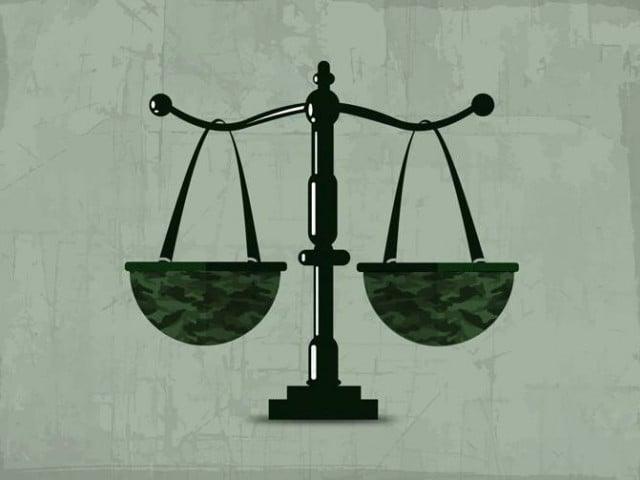Islamabad:
On Wednesday, judge Muhammad Ali Mazhar of the constitutional bench of the Supreme Court observed that the military courts were not part of the judiciary, adding that there were no judicial decision which defined the military courts as part of the judiciary.
“First of all, that the military court be recognized as part of the judiciary, then speak of separating it from the judiciary,” he said.
The remarks were made as a bench of seven judges, led by Judge Aminuddin Khan, heard intra-cout calls contesting on October 23, 2023, judging by a bench of five judges who canceled the military lawsuits of civilians involved in the violence of May 9.
During the procedure, lawyer Abid Zuberi, representing the former heads of the SCBA, argued that the Attorney General had violated the insurance given to the Court.
He stressed that the written insurance of the Attorney General were mentioned in the decision of the bench of five members.
During his arguments, Zuberi recalled that former general military leader Ziaul Haq had ordered a military trial for FB Ali in 1978, but then released him. To this, judge Mandokhail said that General Zia had done what FB Ali wanted to do.
Judge Mazhar said the Army Act had provided complete procedure for military trials, guaranteeing fundamental rights. However, he noted that “if the procedure was not followed, then his simple existence does not make sense”.
Judge Mazhar also noted that there were two key objections at military trials: their perceived lack of impartiality and the limited legal expertise of those who lead them.
Lawyer Zuberi argued that the military courts operated within the framework of the executive. On this subject, judge Mazhar asked: “What is the role of the army? Where is the executive there?” Zuberi replied: “Army’s work consists in defending borders.”
Judge Mandokhail added that the role of the army was national defense.
Judge Mazhar then asked if Zuberi considered that military courts were part of the judiciary. “If you recognize them as the judiciary, the consequences will be different. If a military court is judicial, then he is part of the judiciary. The Munib judge has not classified the military as a judicial court.”
Zuberi reiterated that the decisions of the Supreme Court have established that civilians cannot be courted for civil offenses. “Military courts are not part of the judicial system under the Constitution. They can only try civilians who are part of the military. Under articles 10-A and 4, civilians cannot be courted.” He also argued that by virtue of section 2-D, article 8 (3-A) does not apply to the accused.
However, judge Mazhar stressed that Article 8 (3-A) includes the term “other people”, adding that no decision had given clarity on the military courts so far.
Zuberii insisted that “under article 10-A, military trials cannot be carried out”. Judge Mazhar then asked: “Where does the intention of the link?”
Judge Mandokhail noted that article 2-D does not explicitly mention the military courts but only indicates that a trial will be held for the crime. “He does not specify which forum will the trial conduct,” he said.
Zubberi informed the court that changes had been made to include military trials for attacks on military facilities. Judge Hasan Rizvi replied: “These attacks still occur – there was an attack to Bannu Cantt yesterday.”




